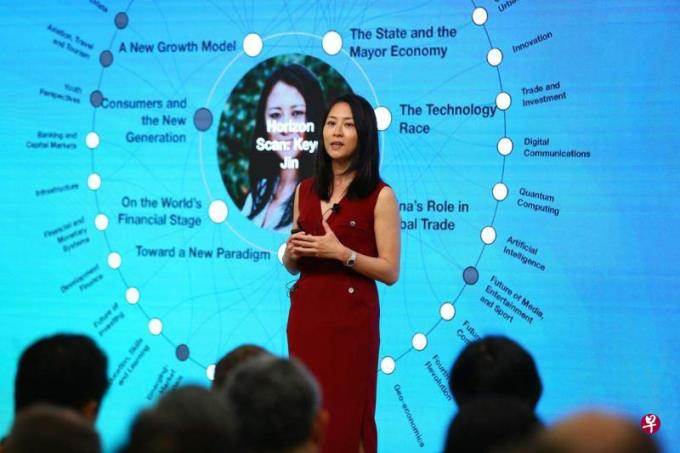
Chinese economist Jin Keyu studied and judged that China still has room to stimulate the economy, but the government does not have enough resources to introduce a large -scale stimulus measure of trillions of RMB.She also called on the official not to rely on infrastructure investment to drive the economy alone, but to try to reduce the financing costs of small and medium -sized enterprises, expand domestic demand, and solve the problem of insufficient confidence.
A series of macro data recently released has caused the outside world to worry about the loss of China's economic growth, and the market call for the government to launch more economic support measures has gradually increased.
Auxiliary professor of Economics of the School of Political Economics of London, Jin Kouyu, on Wednesday (June 28) in the Summer Davos Forum in Tianjin, pointed out that China still has sufficient economic space. The problem is that the stimulation scale must be very large.Only to have a certain impact.
After the global financial crisis in 2008, China has introduced a market of 4 trillion yuan (RMB, the same below, the same, S $ 750 billion) to prevent the economy from falling into recession.
Golden Carrier believes that, unlike at the time, the Chinese government was now restricted and did not have sufficient resources to introduce a large -scale stimulus measures of trillions of trillion yuan; the rewards that stimulus measures could be less than that year.
She said: "In this sense, we have fallen into a vicious circle. You need a large -scale stimulus measure to have a moderate impact, but we have to do that."
Golden Carrier suggested that the official take full action to maintain economic growth to achieve the goal of the total domestic product (GDP) per capita GDP in 2035,These are because of insufficient resources. "
China proposed in 2020 that the goal of achieving total economic or per capita income from 2020 in 2035, which means that the per capita GDP will reach about 23,000 US dollars.
As for specific stimulus measures, Jin Keyu emphasized that China cannot rely on more infrastructure investment to drive economic growth. It must also have good macroeconomic policies, greater transparency, and provide more support for small and medium -sized enterprises.
She explained that the current growth of residents' income is slow, and the profitability of private enterprises has also weakened significantly."Severe demands have led to the slowdown in China's economy, and part of the confidence is also a problem of confidence. Therefore, how to enhance confidence in the private sector in the next few years is critical."
Jin Kouyu believes that the most important job now is to reduce the financing cost of small and medium -sized enterprises.She said that the Chinese financial system has been superimposed to increase capital costs. At present, a large amount of credit is trapped in the financial system and has not served the real economy.
In the long run, Jin Keyu has called on China to further carry out structural reforms, remove the distortion of hinders and goods in the economy, and open the service industry wider widely.
She said that in the face of the unemployment of youth, compared with the manufacturing industry, the service industry can absorb more labor with higher education, but the service industry still has many barriers.
Golden Carrier also does not deny: "(Beijing) is now longing for stability and dealing with external problems, and there is no enough motivation to promote deeper reforms."
The slowdown in economic growth and the weak real estate market, local government debt issues have recently been prominent, and some regions have even increased fiscal revenue through "self -selling and buying" state -owned assets and fictional land transactions.
In the perspective of Jin Keyu, local government debt is "a big problem in China", but it will not cause the financial crisis.She said that a solution was to absorb these debts by commercial banks, but in the long run, fiscal reforms are still needed to allow local governments to find other sources of income.



